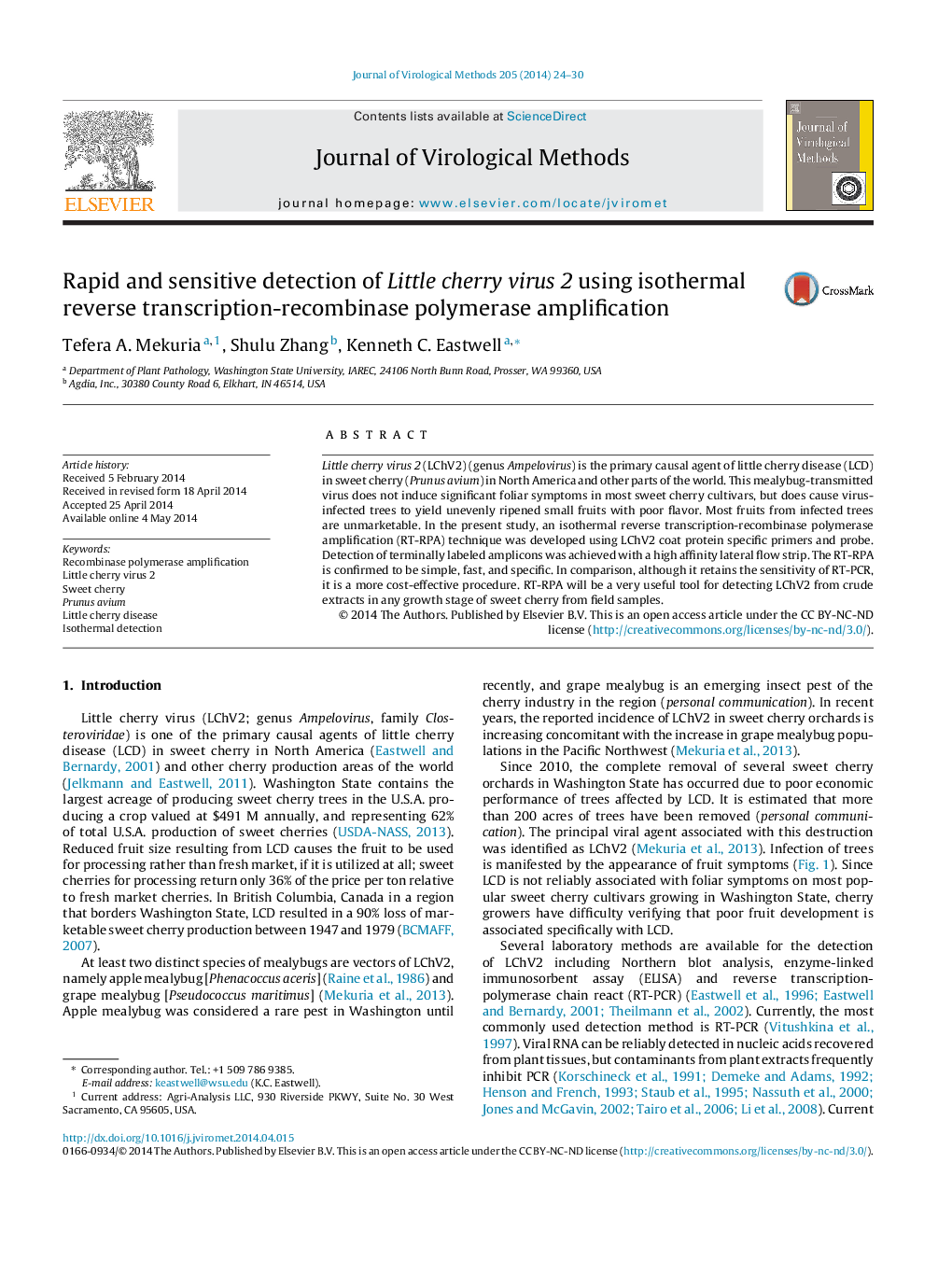| Article ID | Journal | Published Year | Pages | File Type |
|---|---|---|---|---|
| 6133683 | Journal of Virological Methods | 2014 | 7 Pages |
Abstract
Little cherry virus 2 (LChV2) (genus Ampelovirus) is the primary causal agent of little cherry disease (LCD) in sweet cherry (Prunus avium) in North America and other parts of the world. This mealybug-transmitted virus does not induce significant foliar symptoms in most sweet cherry cultivars, but does cause virus-infected trees to yield unevenly ripened small fruits with poor flavor. Most fruits from infected trees are unmarketable. In the present study, an isothermal reverse transcription-recombinase polymerase amplification (RT-RPA) technique was developed using LChV2 coat protein specific primers and probe. Detection of terminally labeled amplicons was achieved with a high affinity lateral flow strip. The RT-RPA is confirmed to be simple, fast, and specific. In comparison, although it retains the sensitivity of RT-PCR, it is a more cost-effective procedure. RT-RPA will be a very useful tool for detecting LChV2 from crude extracts in any growth stage of sweet cherry from field samples.
Related Topics
Life Sciences
Immunology and Microbiology
Virology
Authors
Tefera A. Mekuria, Shulu Zhang, Kenneth C. Eastwell,
